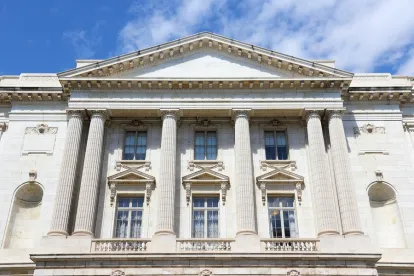On October 28, there was a hearing and vote on the False Claims Amendments Act of 2021, which aims to fix oversights, loopholes, and misinterpreted definitions in the False Claims Act.” The Senate Judiciary Committee voted to advance this act with fifteen (15) yes votes and seven (7) votes of no. An amendment to the False Claims Amendments Act of 2021, proposed by Senator Cotton, which “strips everything in the [False Claims Amendments Act of 2021] except the GAO report,” as said by Senator Grassley, did not pass. The False Claims Amendments Act of 2021 “is about tuning up a very well-oiled machine,” as said by Senator Grassley, so why did seven senators oppose these fixes to the FCA?
The Senators who voted against the False Claims Amendments Act of 2021 are Senator Lee of Utah, Senator Cruz of Texas, Senator Sasse of Nebraska, Senator Hawley of Missouri, Senator Cotton of Arkansas, Senator Tillis of North Carolina, and Senator Blackburn of Tennessee. The argument advanced by those Senators who opposed the Amendment is that these changes “could potentially increase health care costs,” as said by Senator Cotton. This argument has been pushed aggressively by lobbyists from the American Hospital Association and is completely inaccurate.
As Senator Grassley explained during the hearing, the FCA has been in place for thirty-five years and, in that time, has recovered $65 billion in fraud. The amount of fraud that would occur without the FCA would be higher because the “disciplining” effect of the law discourages fraud against the government by potential fraudsters. The decline in the rate of defense spending fraud since the introduction of the FCA demonstrates this effect. Reducing fraud is especially important in the healthcare industry now due to the high amount of government spending in this area due to the Covid-19 crisis. This increased spending makes the amendment’s update to the definition of “material” in the FCA especially important since the government cannot just stop payments for life saving treatments because of fraud, as pointed out by Senator Grassley during the hearing.
Senator Cotton’s amendment sought to prevent updates to the bill on the basis that they need a “sounder factual basis.” This argument is merely a flimsy pretext, as the updates from the False Claims Amendments Act of 2021 do not substantively change the FCA but merely return the law to its original meaning after a number of circuit court splits in recent years that have “misinterpreted and at the same time weakened the legislation,” and because the GAO already has conducted extensive reports on the FCA’s effectiveness.
In his opposition to the bill, Senator Tillis referred to an outdated version of the False Claims Amendments Act of 2021 rather than the final version on which they voted. He opposed increased litigation that would result from the law without concern for the fraud against the government that any litigation would regard. While Senator Tillis proposed eight amendments to the False Claims Amendments Act of 2021, he did not appear to be aware of the changes to the final version against which he voted.
The seven Senators who opposed the False Claims Amendments Act of 2021 opposed fixes to the “government’s most powerful tool in deterring fraud and protecting taxpayer dollars.” Their arguments against these changes merely parrot what has been said by interest groups who stood to gain from exploiting the loopholes that the False Claims Amendments Act of 2021 closes and referenced outdated versions of the Amendments.
Benjamin Calitri also contributed to this article




 />i
/>i

